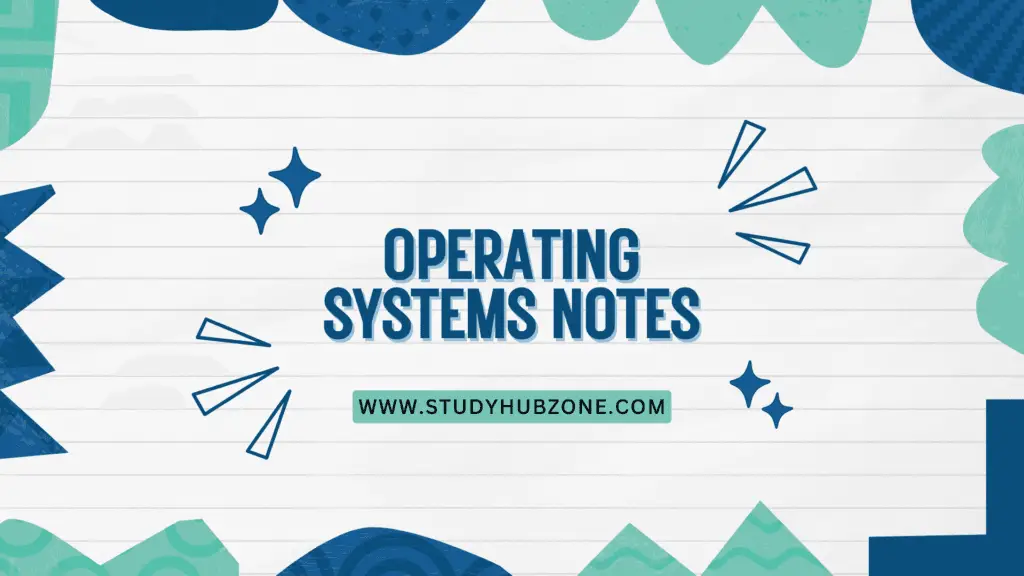
Are you searching for Operating Systems Notes PDF to prepare for your exams? You’re in the right place! Whether you’re a BCA student or preparing for competitive exams like GATE, these high-quality, easy-to-understand Operating Systems notes are perfect for you.
In this article, you’ll get:
Free downloadable PDF notes for each unit
Clear explanations in simple English
Topics covering the complete syllabus
Best study material for quick revision
Explore the units below for detailed content. Want to explore more subjects? – Study Hub Zone
What is an Operating System?
An Operating System (OS) is system software that acts as an interface between computer hardware and the user. It manages hardware resources, enables communication between software and hardware, and ensures efficient execution of tasks.
These notes will help you understand topics like:
Introduction to Operating Systems and Types
Process Management & CPU Scheduling
Threads and Concurrency
Memory Management (Paging, Segmentation, Virtual Memory)
File System Management
Input/Output Systems
Deadlocks: Detection, Prevention, and Avoidance
Security and Protection in OS
Why Use Our Operating Systems Notes?
👉 100% Syllabus Covered
👉 Designed for BCA
👉 Based on Latest University Curriculum
👉 Prepared by Expert Faculty
👉 Perfect for Exam Preparation & Viva
Download Operating Systems Notes PDF – Unit Wise
Click on the download buttons below to get the PDF notes for each unit. All files are safe and free to download.
Course Units
Unit 1: Introduction to Operating Systems
Topics Covered: the definition, functions, and types of operating systems including batch, multitasking, real-time, and embedded systems, along with key components like the kernel, shell, and system calls, and core services like process, memory, file, I/O, and security management.
Unit 2: Process Management
Topics Covered: Explains the process concept, states, and life cycle, including process control blocks, context switching, scheduling queues, types of schedulers, and CPU scheduling algorithms such as FCFS, SJF, Priority, Round Robin, and Multilevel Queue.
Unit 3: Threads and Concurrency
Topics Covered: Introduces threads vs processes, multithreading models, critical section problems, synchronization mechanisms like semaphores and mutex, and classical concurrency problems like producer-consumer, readers-writers, and dining philosophers.
Unit 4: Deadlocks and Memory Management
Topics Covered: deadlock concepts, conditions, and solutions including Banker’s algorithm, as well as memory management strategies like paging, segmentation, virtual memory, demand paging, and page replacement algorithms (FIFO, LRU).
Unit 5: File Systems and I/O Management
Topics Covered: Describes file concepts, directory structures (single-level to tree-based), file allocation methods (contiguous, linked, indexed), and disk scheduling algorithms like FCFS, SSTF, SCAN, LOOK along with I/O hardware and software interaction.
Final Thoughts
These Operating Systems notes are carefully prepared for your academic success. Whether you want to revise quickly before exams or understand complex concepts in an easy way, these unit-wise notes are all you need.
If you find these notes helpful, please share this page with your classmates and bookmark it for future use!
Share With Your Friends!
Found this post helpful? Share it with your classmates and peers who are preparing for Operating Systems. Knowledge grows when shared!
Got Questions or Need Help?
If you have doubts or want other subject notes like DBMS, Data Structures, or Computer Networks, let us know in the comments or contact us!
